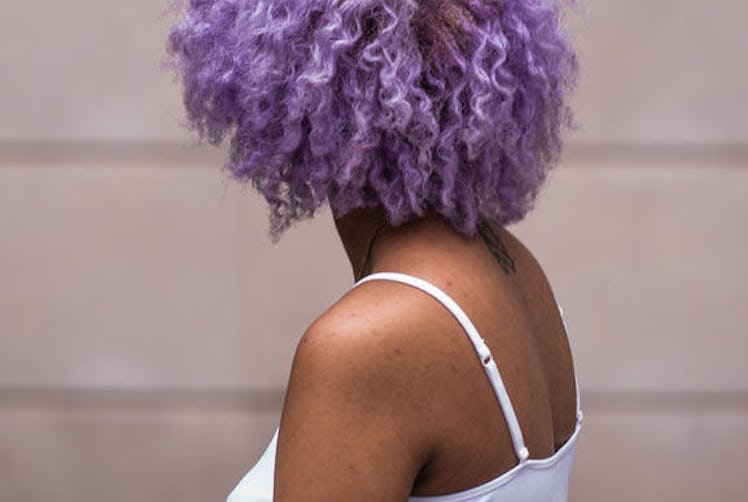
Here Are The Best Ways To Treat Bacne That You Might Not Have Thought Of Before
Dealing with acne on your face can be quite stressful, and it often takes a serious toll on someone's self-esteem. But experiencing breakouts on other parts of your body can make things even worse. Bacne (aka acne that appears on the back), in particular, is especially difficult to deal with, not only because you'll need at least two mirrors to be able to examine it on your own, but it's also hard to treat by yourself. That said, most of us don't want to deal with the burden that comes along with this skin issue, leaving many of us to wonder, how do you get rid of bacne?
Thankfully, there are many ways to achieve clear skin all over your body, and there are also a few steps you can take to prevent it from coming back. So get ready to kiss those stubborn pimples goodbye.
Before diving into how to treat this annoying condition, it's important to understand what causes it. "Acne develops on the back for the same reasons that you get it on the face," Dr. Joshua Zeichner, director of cosmetic and clinical research at Mount Sinai Hospital, tells Elite Daily. "Since there is a high concentration of oil glands on the chest and in the back, these parts of the body are at risk for developing acne. As oil gets blocked within the pores and acne-causing bacteria grow at high levels, inflammation develops, leading to pimples."
Still, many people who practice good hygiene can develop bacne. And according to Murad's Acne Resource Center, it's because the most common cause of acne on the body is hormonal. "[This] is the root cause for the overproduction of oil that often triggers breakouts and has also been linked to the overproduction of skin cells that leads to clogged pores," the website states. "However, acne can also be caused or triggered by diet, stress, exposure to toxins, and even reactions to makeup or skincare products."
So while bacne may sometimes be out of a person's control, it's still important to keep the skin as clean as possible. While cleansing with regular soap and water may not do the trick for everybody, Dr. Zeichner suggests using specialized cleansers at home that contain ingredients like charcoal or volcanic ash to help absorb excess oil and keep pores clear. He also says to "look for exfoliating ingredients that contain salicylic acid or a natural beta hydroxy acid like willow bark extract."
Additionally, if topical acne solutions haven't been doing the trick for you either, you might try to heal your skin from the inside out, either taking a supplement or eating foods high in zinc, which have been shown to treat acne, according to Dr. Zeichner.
Dr. Cynthia Bailey, a board-certified dermatologist in Sebastopol, California, agrees, but wrote in a blog post that, if you want to go the pill route, it's best to first contact your doctor to discuss safe dosage, as taking zinc can cause certain unwanted side effects. "I always prefer [my patients] eat a healthy diet before they turn to dietary supplements," she said. "I believe that whole foods are safer and they have many other health benefits that we are just starting to understand. We know this is true for acne." She also shared that adding foods like beans, nuts, whole grains, and seafood to your diet is a great, natural way to get an extra boost of the mineral in your system.
Since we still have some summertime left in the year — and we're all applying and reapplying our sunscreen like the perfect skincare angels we are — Dr. Zeichner says that, if you're going to be out in the sun and are prone to bacne, it's always good to be mindful of which sunblocks you use, as some can actually make acne worse. "Consider using your face sunscreen on your back if you are prone to bacne," he shares. "Some sunscreens are specifically tested to be non-comedogenic, meaning that they don’t cause breakouts. For example, Neutrogena Clear Face Sunscreen is marketed for use on the face, but I frequently recommend it for the chest and the back in my acne patients."
For all the gym junkies out there, if you've noticed an increase in body acne the more you've been active, Dr. Zeichner explains that it's likely a result of being in sweaty clothing. During the hot and humid months, it's easier for damp clothes to trap sweat, dirt, and oil in the skin, which will eventually lead to more breakouts. So it may be ideal to bring some extra clothes along the next time you work out.
While these solutions may work for some, there's no universal answer on how to deal with body acne — each case is subjective. If you've been struggling with the issue for quite some time, or if you're experiencing severe breakouts, definitely consider contacting a professional to get a specialized assessment.